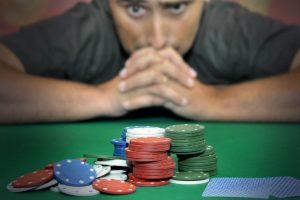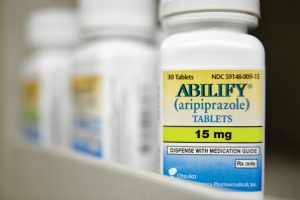 Following a lawsuit in Nevada last month, two individuals from the Canadian province of British Columbia have filed separate lawsuits against the prescription drug Abilify. They claim that as a side effect, the antipsychotic medication can amplify compulsive behaviour such as gambling addiction and as a result, it caused them to lose thousands of dollars.
Following a lawsuit in Nevada last month, two individuals from the Canadian province of British Columbia have filed separate lawsuits against the prescription drug Abilify. They claim that as a side effect, the antipsychotic medication can amplify compulsive behaviour such as gambling addiction and as a result, it caused them to lose thousands of dollars.
The two lawsuits in Canada are against not only the manufacturer of the medication but also against the British Columbia Lottery Corporation (BCLC). As defendants, Jennifer Boisjoli, a White Rock resident who filed a notice of civil claim in BC Supreme Court on March 21, names Bristol-Myers Squibb Canada Co., Otsuka Canada Pharmaceutical Inc., Otsuka American Pharmaceutical Inc., Bristol-Myers Squibb Co. and Otsuka Pharmaceutical Co. Ltd. Originally, the maker of the drug is Otsuka Pharmaceutical Co. Ltd. (OPC), a Japanese company, but its partners in North America are Bristol-Myers Squibb Co. and Bristol-Myers Squibb Canada Co. and they are responsible for the selling and distribution of the product in Canada and the United States.
On March 19, another British Columbia resident, Tyler Hatch, filed a notice of civil claim against the BC Lottery Corporation. According to him, he was enrolled in the BCLC’s voluntary self-exclusion program which lasts six months when he was prescribed Abilify. When the self-exclusion program ended in March 2015 Hatch started playing blackjack on BCLC’s PlayNow online casino. He incurred massive gambling losses of CA$600,000 and the BCLC took no steps to stop his compulsive gambling. They did not even identify “sudden and dramatic spikes” in gambling, his civil claim says.
Boisjoli, on the other hand, alleges that she developed compulsive gambling addiction after taking Abilify. After she was prescribed the drug in 2012, she lost $140,000 while gambling and taking the medication at the same time. In her claim, Boisjoli says that the manufacturers and distributors did not warn the patients and doctors of the risk of gambling addiction associated with Abilify. They included this warning in the prescribing information for European consumers around October or November 2012. This clearly shows that even though they were aware of the potentially dangerous side effects of Abilify, they did not warn the patients in Canada and the United States until 2015.
Previous Lawsuits against the Drug in Nevada
 This is not the first time the prescription drug is associated with compulsive gambling, nor is it the first time a lawsuit is filed against its maker. On March 7, five individuals from Northern Nevada filed a complaint in the Washoe County District Court, claiming that Abilify makers knew about the adverse effects of the medication but did not put them on the labels in the U.S. According to the lawsuit, the drug, which is typically prescribed as treatment of schizophrenia and bipolar disorder, can trigger an increased risk of uncontrollable compulsive behaviors.
This is not the first time the prescription drug is associated with compulsive gambling, nor is it the first time a lawsuit is filed against its maker. On March 7, five individuals from Northern Nevada filed a complaint in the Washoe County District Court, claiming that Abilify makers knew about the adverse effects of the medication but did not put them on the labels in the U.S. According to the lawsuit, the drug, which is typically prescribed as treatment of schizophrenia and bipolar disorder, can trigger an increased risk of uncontrollable compulsive behaviors.
The allegations in the Nevada lawsuit are very similar to the ones in Jennifer Boisjoli’s claim – that the maker and the distributor of the drug failed to warn patients of the potential risks of taking it, despite the fact they were aware of it. Boisjoli is now seeking over $5 million in damages from the defendants, while Tyler Hatch is suing the BCLC for restitution for his alleged gambling addiction-related losses that total $600,000. It is still unclear when the complaints will be heard in Canadian courts.
However, there is a large lawsuit in a Florida federal court against Abilify scheduled for June 18, 2018. Around 750 cases are combined in a multi-district litigation that will see three cases on trial this summer. These claims blame the drug for triggering compulsive behaviours such as gambling or spending, which caused people to lose large amounts of money. Some plaintiffs also report hypersexuality, urges to steal or shoplift, and binge eating.


















